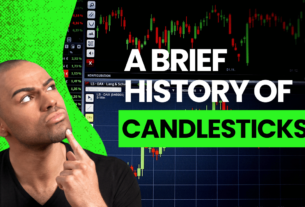Options trading is a type of financial derivative that gives the holder the right, but not the obligation, to buy or sell an underlying asset at a specified price on or before a certain date. Options are commonly used by traders and investors as a way to hedge their positions, speculate on the price movements of underlying assets, or generate additional income.
Options contracts are traded on exchanges and are typically based on stocks, indexes, currencies, or commodities. Each options contract gives the holder the right to buy or sell a certain number of shares of the underlying asset, at a specified price, known as the strike price.
Types of Options:
There are two main types of options: call options and put options. Call options give the holder the right to buy the underlying asset at the strike price, while put options give the holder the right to sell the underlying asset at the strike price.
The price of an options contract is determined by a number of factors, including the underlying asset’s price, the strike price, the time remaining until the expiration date, and the volatility of the underlying asset. The price of an options contract is known as the premium, and it is the amount that the buyer of the contract must pay to the seller.
When trading options, there are several key terms and concepts that it is important to understand. For example, the strike price is the price at which the underlying asset can be bought or sold if the option is exercised. The expiration date is the date on which the option contract expires and becomes worthless. The underlying asset is the asset that the option contract is based on, such as a stock, index, currency, or commodity.
There are several different strategies that traders and investors can use when trading options. For example, a trader might buy a call option on a stock that they believe is undervalued, with the goal of selling the option for a profit if the stock’s price rises. Alternatively, a trader might sell a put option on a stock that they own, with the goal of generating additional income from the option premium.
Overall, options trading can be a complex and risky endeavor, and it is important for traders and investors to have a thorough understanding of the risks and potential rewards before entering the market. It is always a good idea to consult with a financial advisor or a knowledgeable options trader before making any options-related decisions.
Strategies of Options Trading:
There are many different strategies that traders and investors can use when trading options. Some of the most common strategies include:
- Buying call options: This strategy involves buying a call option on a stock that the trader believes is undervalued. If the stock’s price rises, the trader can sell the option for a profit.
- Selling put options: This strategy involves selling a put option on a stock that the trader owns. If the stock’s price falls, the trader may be required to buy the stock at the strike price, but will still earn the option premium.
- Covered call writing: This strategy involves selling call options on a stock that the trader owns. If the stock’s price rises, the trader may be required to sell the stock at the strike price, but will still earn the option premium.
- Bull call spreads: This strategy involves buying a call option on a stock with a low strike price, and selling a call option on the same stock with a higher strike price. If the stock’s price rises, the trader can sell the option for a profit.
- Bear put spreads: This strategy involves buying a put option on a stock with a high strike price, and selling a put option on the same stock with a lower strike price. If the stock’s price falls, the trader can sell the option for a profit.
These are just a few examples of the many options trading strategies that traders and investors can use. It’s important to remember that each strategy has its own risks and potential rewards, and it’s always a good idea to consult with a financial advisor or a knowledgeable options trader before making investing decisions.





